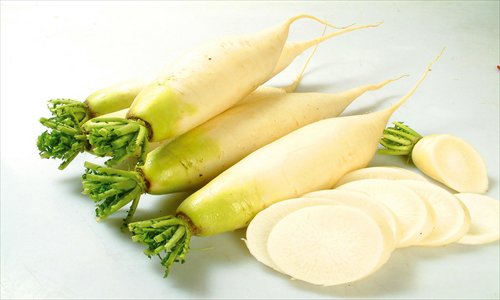In from the cold

Editor's note
The ancient Chinese created an agricultural solar system - still in use today - that is based upon their observation of crops, climate, astrology, and the study of animal and plant life cycles. The system guided farmers as to when to sow seeds and when to harvest them, and this system has now been in place for more than 2,000 years.
Today, with advances in science and technology, agriculture depends less on this ancient wisdom. But this seasonal calendar still operates as a reference guide for gourmands to seek out the best times for seasonal delicacies and for health experts to plan nutritious diets.
In a single year, the system features 24 "solar terms," each lasting one day and occurring every two weeks. Each has its own name and characteristics. The Global Times is presenting a weekly series examining which foods and delicacies are best enjoyed during these periods, as well as tips on preserving general health.
"Although over the past weekend Shanghai has experienced warm temperatures, in contrast to the freezing chills of late, dahan (great cold), together with xiaohan (slight cold), is still generally considered as one of the coldest periods of the year," Xu Liang, a doctor from the Shanghai Traditional Chinese Medicine Hospital told the Global Times.
According to the Oriental Morning Post, on January 20, the first day of dahan, the temperature raced up to 14.4 degrees centigrade, making it the warmest day of 2013 so far.
Dahan is the last solar term of the Chinese solar year, and during this period northern China is frequented by cold fronts from Siberia, while southern China suffers from abruptly changing weather conditions.
Vulnerable people
"People are more subject to respiratory problems during this period, and people who suffer from cardiovascular disease are particularly vulnerable," said Xu.
According to Xu, it is not only weather changes that are responsible for health problems, but also the huge temperature differences between indoors and outdoors.
Xu advises that this temperature difference should never be more than 10 degrees centigrade.
Meanwhile, taking exercise in sunlight is also a good option to build up strength and to enhance a person's resistance to the cold.
One popular Chinese belief regarding the maintenance of good health has it, chun sheng xia zhang qiu shou dong cang, which refers to how people should alter their habits in order to stay healthy during the changing seasons. In winter, the top priority for staying healthy is said to be cang which means to preserve energy and qi (life force) in the body.
"To comply with the aims of cang, people should sleep early and get up late in order to preserve their yangqi (energy). At the same time, to maintain a calm state of mind, it's important not to work overtime. This is vital to achieving the nourishment of the heart and general energy," Xu recommended.
Healthy drinks
Many Shanghainese people follow the tradition of drinking "medicinal" wines during the cold weather, such as huangqi jiu (rice wine with astragalus root), shen jiu (rice wine with ginseng), and danggui jiu (rice wine with angelica). However, according to Xu, medicinal wine isn't suitable for everyone.
People who suffer from high blood pressure, high blood fat levels, or diabetes should keep away from medicinal rice wines. "These health conditions vary from people to people, so it's advisable to only consume medicinal foods and wines under the strict instruction of a doctor," added Xu.
Among the variety of good food options available, Xu recommends radish as a healthy choice during dahan. According to the principles of TCM (traditional Chinese medicine) radish helps to remove "inner heat" that accumulates in the body due to the dry air in air-conditioned rooms. However, radish is not suitable for patients suffering from chronic gastritis or a gastric ulcer.